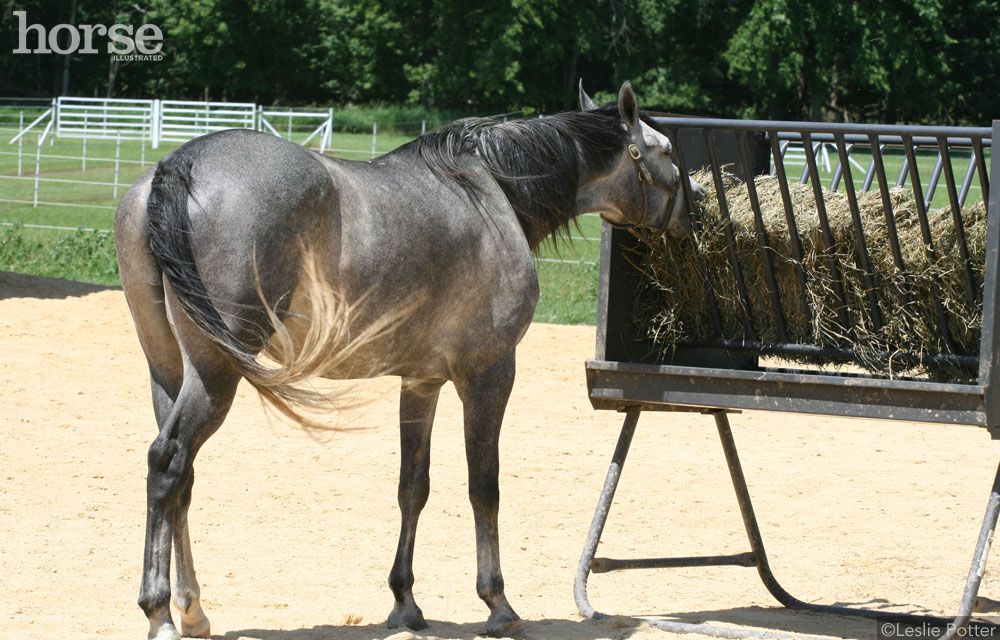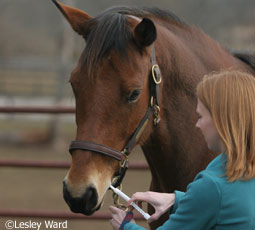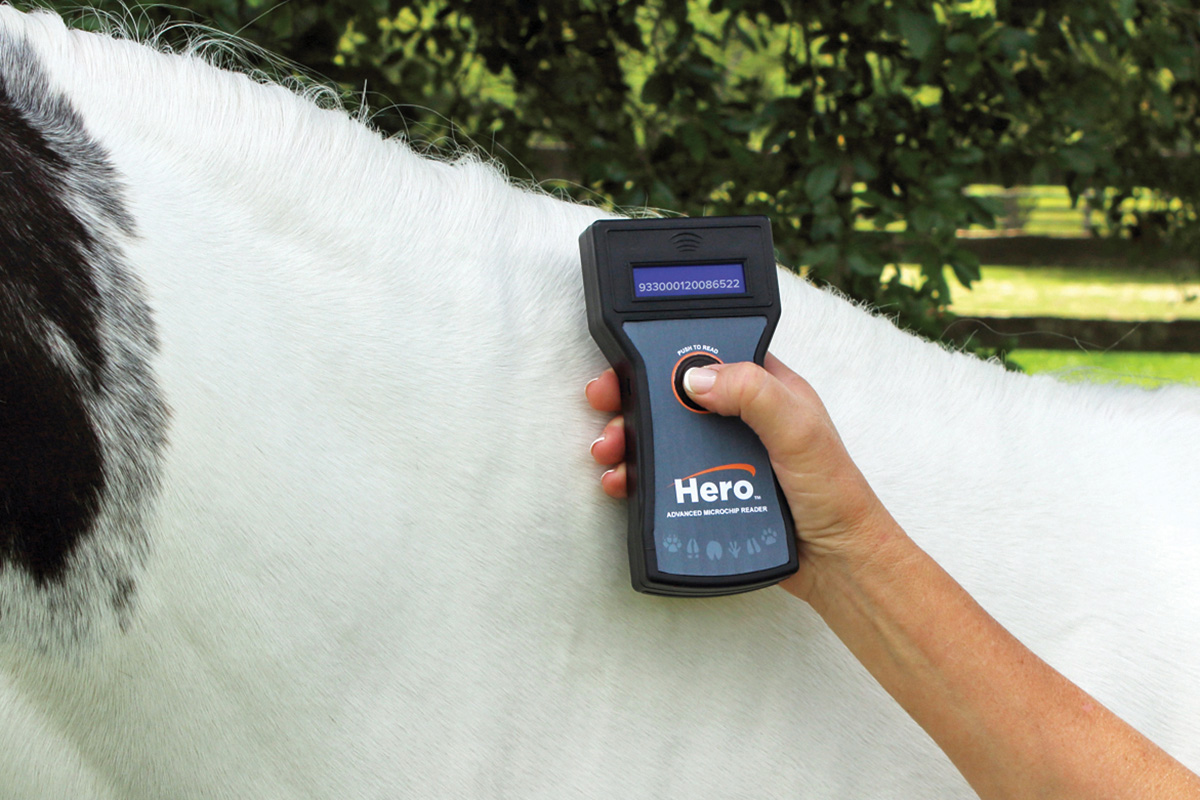Q: Can you feed a purebred Arabian straight alfalfa? I have an 8-year-old Arabian mare who is underweight. The vet said to put her on alfalfa and grain, but the owner of my boarding stable says that straight alfalfa is bad for Arabians and they need to eat only straight grass hay or a grass/alfalfa mix. Is there any truth to that, and if so, why?

A: The most important aspect of your question is this key fact about forages: not all alfalfa is created equal. Yes, as a generality, alfalfa is higher in protein, calories, and calcium than grass hay, since alfalfa is a legume. However, between one farm’s alfalfa and another farm’s, exact percentages of these nutrients can vary drastically due to farming and harvesting techniques, growth of the plant, and what stage of growth the hay is when cut. There are in fact instances where a poor quality late season cut of alfalfa may contain less protein and calories than a leafy, lush early cut of grass hay. To truly know the exact percentages of protein and other nutrients in a particular cut of hay, you would need to submit a sample of the forage for analysis. Many agricultural extension agents associated with local universities can provide such a service at a relatively low cost.
Alfalfa has a somewhat bad reputation among horse owners, but it is often misunderstood and utilized improperly. Due to its inherent composition of high caloric content and high protein, this type of forage will cause weight gain if fed to idle or lightly worked adult horses, and it can result in growth issues and developmental orthopedic disease if fed inappropriately to young stock. It has also been implicated in the development of enteroliths (intestinal stones).
However, if a particular horse is in a metabolic state that requires relatively high levels of calories and protein, then alfalfa has a place in this animal’s diet. Examples of this type of situation would include mares in the third trimester of pregnancy, heavily lactating mares, young growing animals, heavily working horses, and those that are undernourished, sick, or otherwise in a metabolic state of catabolism (when the body is breaking down its own muscle stores for energy).
As such, it is true that most adult horses do not need straight alfalfa and most maintain an appropriate body weight on grass hay only. However, in the case of underweight animals such as your mare, adding protein-rich alfalfa can be helpful in putting on weight in some cases. I disagree with the rule that straight alfalfa is bad for Arabians, as each horse’s dietary needs, regardless of breed, are entirely dependent on that individual’s metabolism, overall health, and daily activity. Instead, in most cases, it is more accurate to say that straight alfalfa is unnecessary for healthy adult horses with a sedentary or light work lifestyle.
However, while alfalfa can be used to put weight on a thin horse, this must be carefully controlled. It is important that undernourished animals gain weight slowly and dietary changes be made gradually to prevent counter-productive health problems such as diarrhea, impaction colic, and even laminitis. While it is not clear if your mare is underweight due to environmental or metabolic reasons, I recommend you work closely with your vet to monitor your mare’s weight during this period of methodical weight gain, taking care to set clear goals as to when to gradually wean her from straight alfalfa, as she will likely not require such a robust diet as she achieves an adequate level of body condition.





My Arabian was on straight alfalfa hay for a year while I was at college. I was an equine studies major, and I boarded my mare at the college barn. All of the student horse’s were on straight alfalfa. Granted non of them were underweight however they were ridden everyday and sometimes more than once a day, we never had problems with the alfalfa. Not even my Arabian mare or another students Arabian mare.
Great advice. And timely too as I’m getting a new horse and looking into hay options.
Nadine, did any of the horses have problems afterwards?? That would be an interesting study.
Like my Dad would say, a little bit of this and a little bit of that, and it will be good outcome. Just not all this or all of that.
Thank you, I did know that alfalfa could develop intestinal stones and so much more so thanks. I hope all goes well with your horse.
informative article
I always heard that alfalfa made their hooves soft, so I only feed grass hay.
Straight alfalfa is not good for any breed. It is too rich in protein, calcium and phosphorus which poison the liver. Grain is also too rich and should be fed in small quantities.
1/4 alfalfa/hay or 1/2 alfalfa/hay mix is best if your horse is a hard keeper. Your horse will never gain weight by only eating grass hay if it’s a hard keeper!
I know a breeder of pure bred Arabians and she fed her horses straight Alphafa all the time and as far as I know has had no problems with her horses! And I had brought my mares there to be bred and they were fed the same and I when I brought them back home they were fine and no complications!
Excellent article! We have 2 Egyptian Arabians that are 5 and 6. They had struggled keeping weight on. So I had switched to a 70/30 70 alphalpha 30 grass. Which has been amazing. My wife’s Arab (Sadie)holds weight very well but my 17 hand Arab (Axle) is very tall and lanky and had lost weight during every workout. Now that he is on alphalpha he has gained close to 300 pounds very quickly and he does mountain riding of 20 plus miles 3 times a week. Alphalpha is like a good steak for us. The more I eat the better my weight training.